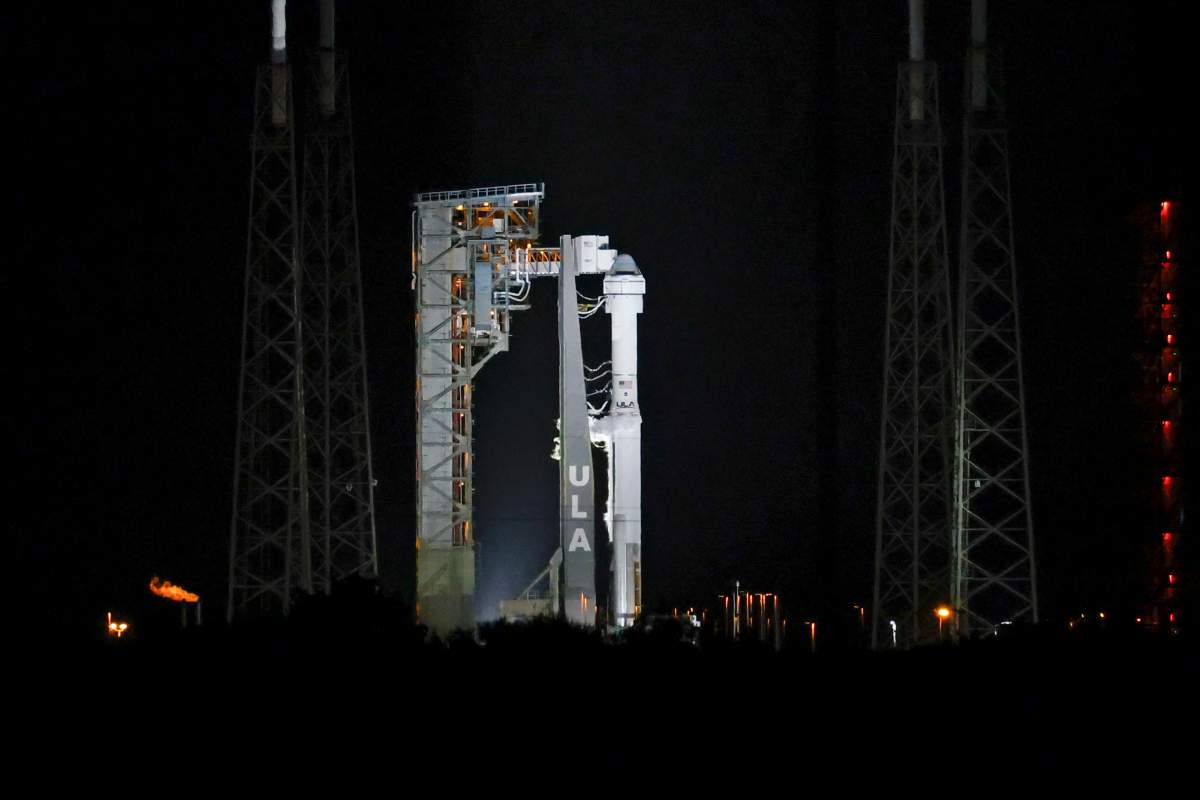Boeing‘s first attempt at sending astronauts to space was called off Monday night after a loud buzz was heard in the rocket.

Two NASA test pilots, Barry “Butch” Wilmore and Sunita “Suni” Williams, had already boarded the Boeing Starliner capsule and were strapped into their seats when the launch countdown was halted just two hours before the planned liftoff from Cape Canaveral Space Force Station in Florida.
Crews heard a loud buzzing noise coming from the rocket meant to shoot the Boeing capsule into space, so the decision was made to postpone the launch attempt. The flight was meant to ferry Wilmore and Williams to the International Space Station.
The issue was traced to an oxygen pressure-relief valve on the upper stage of the Atlas V rocket, manufactured by United Launch Alliance (ULA), not Boeing. ULA CEO Tory Bruno said the valve started fluttering open and closed, creating the buzzing noise, during a news briefing Monday night.

Get daily National news
The final call to halt the launch came from ULA launch director Tom Heter III, the company wrote on X (formerly Twitter).
“Out of an abundance of caution for the safety of the flight and pad crew, we scrubbed the Crew Flight Test (CFT) launch attempt today,” ULA wrote in a separate post. “The team needs additional time to complete a full assessment, so we are targeting the next launch attempt no earlier than Friday, May 10.”
“Good things are worth waiting for, and we’ll get a chance to see that rocket and spacecraft (get) off the pad here soon,” said NASA’s associate administrator for space operations Ken Bowersox during Monday’s news conference. “We still have to gather more data. We don’t have a definitive plan for you yet — that will come as soon as we can provide it.”
Engineers will have to determine if the valve needs to be replaced, in which case the rocket will need to be rolled off the launchpad for maintenance work, which could push back the launch date further than May 10.
Bruno said similar valve trouble had occurred in years past on a few other Atlas rockets launching satellites. It was quickly resolved by turning the troublesome valves off and back on. But the company has stricter flight rules for astronaut flights.
It was the latest delay for Boeing’s first crewed flight, on hold for years because of capsule trouble.
NASA first tapped Boeing and SpaceX over a decade ago to develop space capsules for the agency after it retired its own shuttle program in 2011. Since then, Boeing has fallen woefully behind SpaceX, which has been flying crewed flights since 2020.
Starliner’s first test flight without a crew in 2019 failed to reach the space station after a software issue caused the spaceship to burn too much fuel and enter the wrong orbit. Boeing then encountered parachute issues on a later attempt. Starliner finally had its first successful flight without a crew in 2022.
— With files from the Associated Press
- Canada has ‘limited’ seats for citizens on commercial flights amid Iran war
- Vegas casino owner’s ‘at par’ pricing sees 15K Canadian visitors in 1 month
- U.S. sinks Iranian warship, Hegseth says, as Iran conflict expands
- ‘An eyesore’: Trump’s White House ballroom plans receive deluge of public comments











Comments
Want to discuss? Please read our Commenting Policy first.